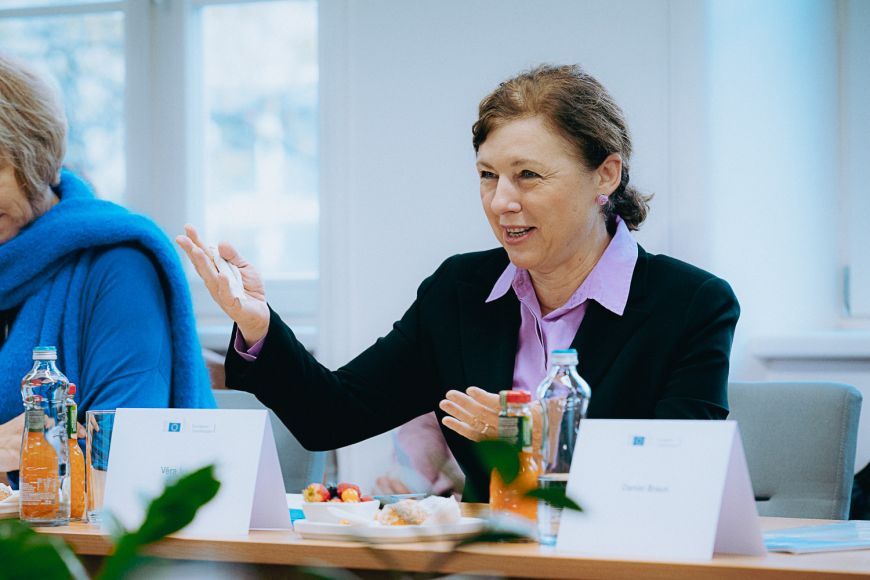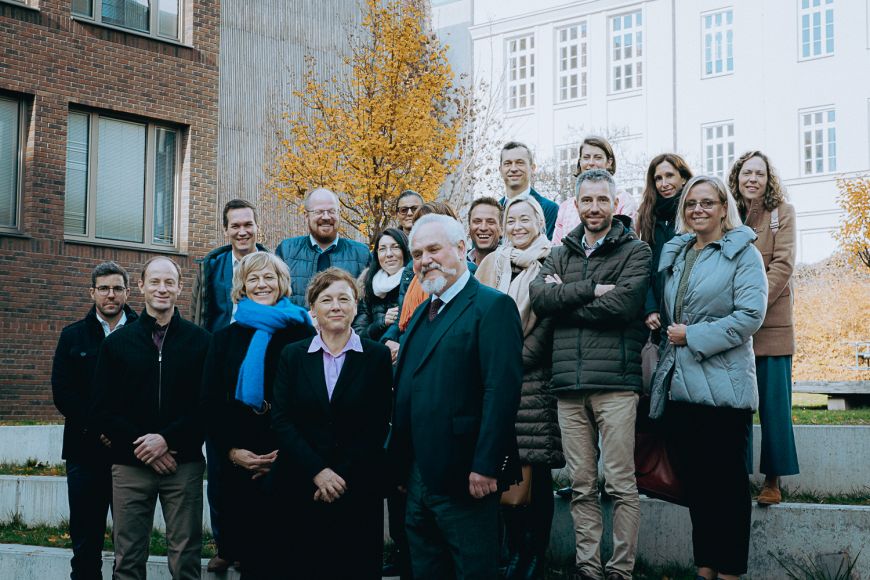The involvement of Professor Andrey Zubov at Masaryk University resonates throughout Europe. Shortly after the Russian historian’s arrival the management of the university received a request for a meeting from the team of the Vice President of the European Union for Values and Transparency Věra Jourová. Zubov and the highest ranking Czech woman in the executive branch of the EU met at the Faculty of Arts.
It was your first visit at Masaryk University in your current role, and it was your idea to meet professor Zubov. Why?
I saw professor Zubov on TV and I went back to some of his older articles and I found out he is a person I want to meet. Not just for his amazing wisdom and as an author of a book on Russian history, but also as a human being because I think that has been very brave throughout his life, even when he faced imprisonment shortly before his departure. His statement about not being afraid of prison because freedom of speech is more important than his individual freedom as such was very impressive and admirable.
So what impression did professor Zubov make?
I arrived with an international team and I wanted all of us to listen to a person who is very knowledgeable in Russian history and who understands the Russian spirit and the history of the coexistence of Russia and the rest of Europe. And he did make the impression we expected because we heard interesting opinions that helped us better understand what we experience now and what we can experience going forward. One of our questions pertained to what we can expect in terms of the relationship with Russia in the future.

Your meeting with professor Zubov lasted about an hour; how formal or informal was it?
I did not know what to expect but once I met him I knew it would be a less formal hour because his personality and way of greeting suggested a very open and friendly dialogue filled with very important information.
What did you talk about?
We talked about the current situation; how Russia has become internationally isolated; whether the sanctions are effective or not; and how the current situation is perceived by a typical Russian. My team and I were very much interested in finding out what we can do to better inform Russians about the actions of their country in Ukraine. And professor Zubov did indeed confirm that we shall try to do so. And that we should not be using the same methods against Russia because we are under tremendous pressure in the form of war propaganda and lies; but that we should direct to Russians accurate information that paints the accurate picture.
What is the potential impact on European affairs of the involvement of professor Zubov at Masaryk University, as he is a vocal critic of President Putin?
I think it is a great honor for Masaryk University, Brno and the Czech Republic that professor Zubov has chosen this place as a visiting professor. As for the effects, I can talk about the effects on us, meaning decision-makers; in terms of sanctions, investigation of war crimes or the approach towards Russian immigrants. I have to say we will have to consult the information. As I told professor Zubov, the one-hour debate is not an hour of pure theory and it is very important to us to know how to proceed at the EU level.
The current situation in Ukraine has been very polarising. What do you think about the fact that Masaryk University has rejected the principle of collective guilt and supports students and academics from war-torn Ukraine and, at the same time, has provided sanctuary to professor Zubov?
We hoped to never have to apply the principle of collective guilt in Europe ever again. Today we have to think hard about Russian citizens, especially those already present on our territory. So far we can do it on a case by case basis. I asked European journalists whether they cooperate with Russian colleagues and whether they can tell them apart. I was assured that it is a very transparent matter. And I was also told that they are interested in cooperating with Russians who escaped the regime because they oppose it and, before they left, had been in great danger. This is why I think the collective guilt approach is not applied, and will not be applied. On the other hand, collective responsibility is another thing when it comes to Russians being familiar with the situation and being able to do something about it. Once Russians find out what has happened and what the Kremlin has started they might be able to speak up and voice their disagreement.

